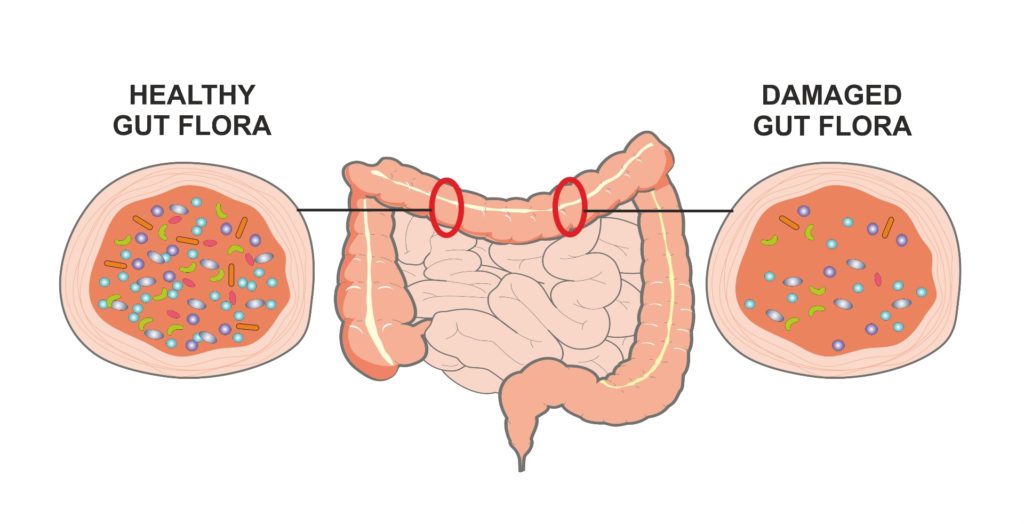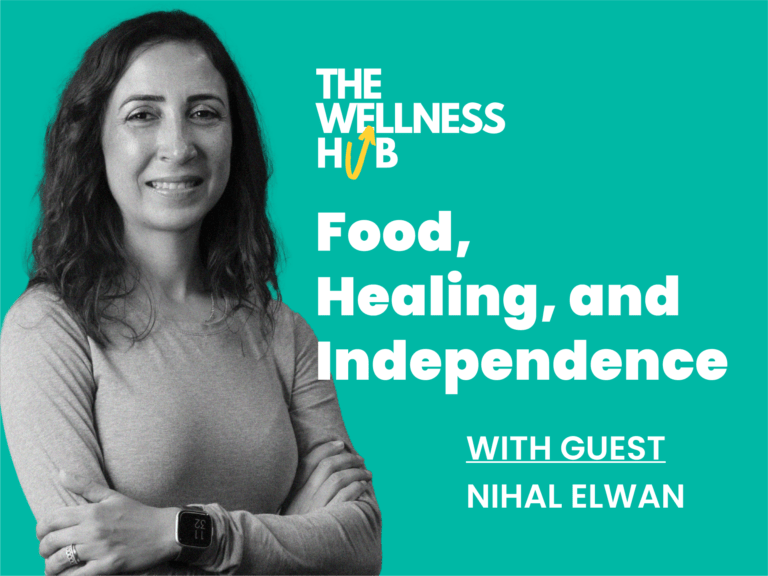Multiple health issues, from stress to chronic disease, are associated in one way or another with sub-optimal gut health. So, tending to our digestion and maintaining a healthy gut can help us optimize our overall well-being and steer clear of unwanted disease.
If you’re not entirely familiar with the gut and how it functions, we recommend that you take a look at our article “Gut health: What it is and why it matters” to get a deeper understanding.
When we talk about “the gut” we are referring to the GI tract and all the living microscopic entities that live within it known as gut flora or gut microbiome.
Here are 10 rules (five “do’s” and five “don’ts”) to support your gut microbiome to keep healthy levels of bacteria and other necessary agents that keep our guts functioning well.
What is the gut microbiome?
The terms gut microbiome, gut flora, or gut microbiota, all refer to the microscopic organisms that live within our bodies. Each one of us has billions if not trillions of live organisms that live symbiotically within us. The gut microbiome is specifically the lot of microorganisms that reside in the GI tract.
The digestive tract is all colonized by living organisms that support digestion as well as other processes in the body. These include bacteria, fungi, and archaea and are all referred to as “healthy bacteria” among other names.
Our bodies are colonized by these microorganisms through many natural processes including natural childbirth, breastfeeding, exposure to nature, and consuming probiotic-rich foods.
The gut microbiome plays a key role in many bodily processes from the proper metabolism of food, to immune defence and brain function.
The risks of a weak gut microbiome
A healthy gut microbiome will generally maintain the body’s processes and can keep us healthy and lively. However, when the gut flora is disturbed, decreased, or threatened, many health issues can arise.
When healthy, our gut microbiome keeps unhealthy bacteria at bay. But if threatened through factors like unhealthy diets, stress, medication, and other elements, it can be significantly reduced or weakened.
The condition of having a reduced or imbalanced gut microbiome is known as dysbiosis. A state of dysbiosis allows space for unhealthy or irritating agents to take over and colonize the GI tract. This disbalance of healthy and unhealthy gut microorganisms can lead to developing gut-related issues like SIBO (small intestine bacterial overgrowth), intestinal candidiasis (yeast overgrowth in the gut), leaky gut (the permeable gut lining that allows toxins to leak into the bloodstream), and other digestive system dysfunctions.
These digestive disorders at first glance could seem like not much of a threat, but if left unattended for enough time they can lead to major health issues.
Poor functioning of the gut microbiome has been linked to many conditions on a physical and mental level. Leaky gut syndrome for example is known to increase the risk of developing chronic diseases like autoimmune disease, metabolic syndrome, and even cancer.
On a cognitive level, poor microbiome health has been linked to conditions such as ADHD, ASD, Alzheimer’s, Parkinson’s, and even Tourette’s syndrome.
Mood disorders like anxiety and depression also seem to have a direct correlation with gut microbiome levels.
Needless to say, taking care of our gut health can bring great rewards to our overall physical and mental health. So let’s dive into what we can do to strengthen our gut.

Gut health “don’ts”
There are several things that can be aggressively detrimental to gut health and that you might want to avoid as much as possible. Let’s look into some of the biggest threats to gut health:
1. Antibiotics:
Although useful (and necessary) in acute cases, antibiotics should not be taken lightly, and in most cases should not be taken long term. Antibiotics kill all bacteria and microbial life (both good and bad) in your gut.
If you are prescribed antibiotics, talk to your healthcare provider to see whether there are any alternatives for treatment. Antibiotics are often over-prescribed and taken with less thought than they should, and unfortunately, many health care professionals won’t address the adverse effects that these can have on your health. Often, if the situation is not an urgent case, a second opinion might be insightful in this area.
Many people who have been on long-term antibiotic treatments pay the price heavily with all sorts of microbiome-related issues. In fact, the long-term use of antibiotics is a significant predisposing factor in the development of autoimmune diseases.
If an antibiotic regime is indeed necessary, a healthcare professional might suggest adding a probiotic supplement regime to counteract the damage. Sticking to this regime is crucial for proper damage control.
2. Sugary Foods:
Unhealthy gut bacteria thrive on simple sugars, and when unhealthy bacteria thrive, healthy bacteria start to lose territory. Limiting foods such as desserts, pastries, candy, sweet drinks, and added sugars can help starve some of these unhealthy bacteria so that they don’t overpower healthy organisms.
3. Alcohol:
Alcohol also disturbs gut health by feeding unhealthy bacteria and hurting healthy bacteria. In excess it acts as an inflammatory agent, creating inflammation in the body by disrupting the gut barrier (leading to that dreaded leaky gut syndrome mentioned above).
4. Processed Foods:
Heavily processed foods like fast foods, artificially flavored foods, and many “diet” foods are full of added chemical ingredients that disturb microbiome balance and contribute to inflammation. Staying away from heavily processed products as much as possible is generally a good rule to support gut health.
5. Stress:
The relationship between the gut and the nervous system is bilateral, so the gut affects the nervous system as much as the nervous system affects the gut. Chronic stress has been shown to contribute to gut dysbiosis and inflammation.
Taking time to rest and recover, and practicing healthy stress coping skills can help your gut flora stay strong amidst stressful moments.
Gut health “do’s”
1. Eat Real Foods:
Healthy bacteria is designed to thrive on healthy, real, and natural foods.
Diets with plenty of fresh vegetables, quality protein sources, healthy fats, and moderate whole grains and legumes are best to help support gut health.
The mediterranean diet for example is known for its anti inflammatory, and nutrient rich characteristics.
2. Supplement With Probiotics:
Probiotics are live bacteria you can consume through food or supplements. Taking probiotic supplements can help recolonize the gut with healthy bacteria after it has taken a toll. Taken regularly these supplements can also work as a preventative, maintenance regime.
Talk to a healthcare provider to see if this is a good option for you and what sorts of probiotics you would do best with; this is important because randomly taking probiotics can actually dysregulate gut microbiome balance.
3. Know Your Prebiotics:
Prebiotics are basically food for your gut bacteria. Prebiotic rich foods include garlic, onions, apples, fresh vegetables, chicory root, flax seeds, and more.
There are also prebiotic supplements in the market. Although these can be helpful and convenient at times, sticking to eating real, unprocessed foods is always the best call for overall health.
4. Fermented Foods:
Fermented foods are a powerful source of prebiotics and some of them like yogurt even contain live healthy bacteria. Eating fermented foods like kefir, yogurt, kimchi, sauerkraut, and kombucha, can help support healthy gut organisms.
In the case of having known colonization of unhealthy bacteria (conditions like systemic candidiasis and others), these foods should be limited until the unhealthy agent has been eliminated or is under control, as many of these foods also feed and strengthen unhealthy bacteria.
5. Get Good Sleep:
The quality, efficiency, and duration of our sleep can affect our gut microbiome. Studies have shown that significant changes to sleep-wake cycles can affect the balance of the gut microbiome.
Gut flora is sensitive to circadian rhythms, so a sleep routine with a steady bedtime and wake-up time can help maintain the balance of our gut microbiome.
For tips on better sleep check out our article on how to optimize your sleep.
Learn more about health tips from UpMeals team.





